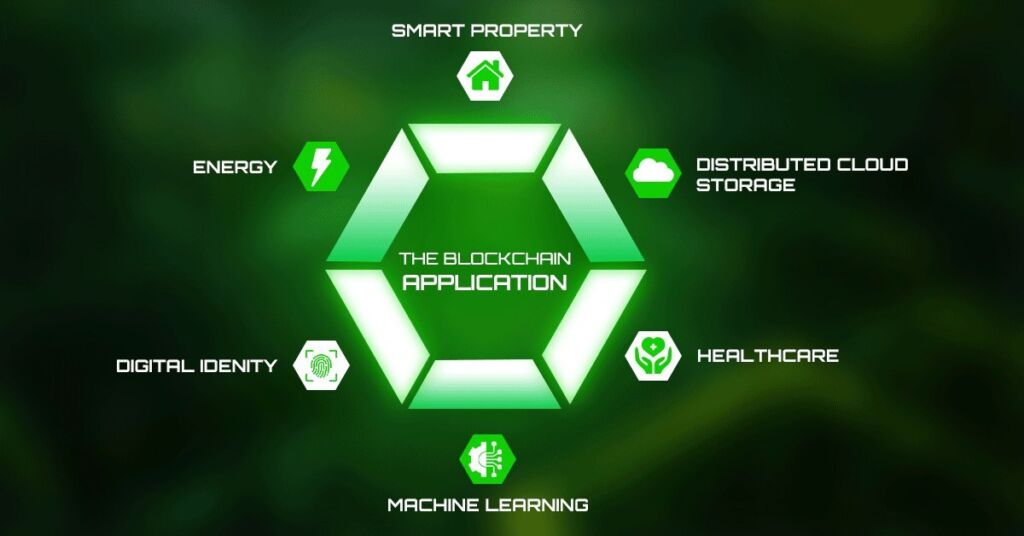
Consensus Algorithms blockchain offer many advantages for organizations, including transparency, decentralization, improved efficiency, and enhanced security. It has the potential to establish standards in industries that depend on middlemen or mediators in the marketplace.
Table of Contents
Examples of Consensus Algorithms
- Government: Governments are using blockchain technology for automation processes and storing digital records related to important data of government or it can be used in storing criminal records so that it can be safe against tampering.
Dubai became the first city to implement blockchain technology in all its work related to municipal city operations. Making everything transparent and efficient on a public ledger.
- Energy management: blockchain technology can be used in energy management with the help of smart contracts the distribution of energy will remove the tedious task of billing and will automate everything in the energy sector.
Sun contract can eliminate the need for solar energy from companies that transport this energy from the producers to the consumers.
- Supply chain management: Companies must place transactions in a decentralized and secure environment to navigate supply chain management effectively through blockchain technology.
Fluent: This platform utilizes blockchain technology solutions to ensure transparency from the start of the supply chain to the customer.
Everledger: Everledger is a platform for tracking the delivery of diamonds from the starting place until they reach the destination. So the client gets to know the current location of the assets and when it will be delivered.
- Healthcare: in the healthcare domain medical data are the most crucial thing that has a record and history of patients’ health. So with the help of blockchain technology and smart contract implementation, it will only be accessible to the authorised person.
Gem: This is the platform on which everything is on a decentralized database and only accessible to a dedicated person who is meant for.
- Banking & Financial: Blockchain technology can be used in banking and financial sectors to automate the transaction and renewal of policy before or at the end of the due date with the help of smart contracts.
Abra: it enables customers to send and receive money across the globe without incurring traditional banking fees by leveraging blockchain for efficiency.
- Human resources: Blockchain can improve human resource management by speeding up the hiring processes and increasing data security.
Colony.io: This platform uses blockchain to manage the employment process, allowing employers to check candidate credentials efficiently
- Forecasting: Blockchain technology offers new forecasting algorithms that can predict beyond standard methods by harnessing decentralized data.
- Augur: The Augur platform enables users to make and exchange forecasts about future events while utilizing blockchain to assure transparency and security.
- Charity: Critics have often criticized the exposure of donation disbursement or any contribution made to charities. Blockchain provides a solution as people can see in real time where their funds were disbursed to prevent misuse.
Bitgive uses blockchain to create a clear contribution process in its widely used app. Donors may get to know exactly how their money is being spent, increasing their trust in the organization. Bitgive records every contribution made to charity through donations on a public ledger, enhancing accountability and increasing trust between contributors and causes, encouraging many people to contribute.
- Voting: As elections are the most important thing in a democracy they should be conducted without any mismanagement or false voting count. With the help of blockchain and smart contracts, the votes get cast automatically and the results are declared in a biased form so cheating and false vote registration will be avoided.
Follow My Vote employs blockchain to ensure credible and secure voting. These platforms can enable individuals to register to vote and confirm their identities through an electronic record. Additionally, the decentralized infrastructure of the blockchain accurately records all votes cast and can be easily verified, increasing people’s faith in the election outcome. Blockchain has the potential to enhance participation through distance voting, especially in marginalized groups.
- Land Registration: Blockchain technology can help speed property transfers and increase trust in ownership records, simplifying the complex and bureaucratic procedure of land registration that often leads to disputes and inefficiencies.
For example, land records management projects in India use blockchain to keep property registers up to date. They digitize and store land records on a blockchain, which makes transferring property ownership safer and more efficient. The immutable ledger records all transactions involving property, reducing the risk of fraud and ownership disputes.
Conclusion
Blockchain technology is emerging in the current industry for providing security to valuable data in every sector and organization. But most of the time it is being used in peer-to-peer transfer of digital assets. Everyone is using it as per requirement and use case because it has a wide range of applications and it will continue to grow in the future. It’s a next-generation technology and will change everything in the coming generations.
